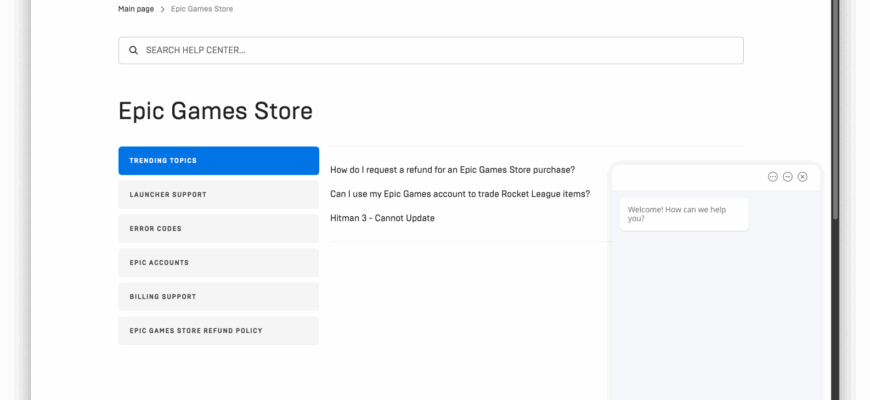In a move that underscores its deepening commitment to artificial intelligence, Epic Games, the developer behind the global phenomenon Fortnite, has announced the rollout of an AI-powered chatbot designed to streamline player support. This initiative, initially a small-scale test, signals a significant evolution in how game developers are leveraging AI to interact with their vast player bases, extending far beyond in-game mechanics.
The Digital Assistant Arrives
The new AI chatbot is not merely a Fortnite exclusive. It`s designed to assist players across Epic’s diverse ecosystem of games and services, aiming to provide swift and accurate answers to common support inquiries. While currently only accessible to a mere 1% of users on Epic’s English-language support site – a cautious initial deployment – the intent is clear: to accelerate problem-solving and enhance the overall player support experience. One might imagine it patiently clarifying why a V-Bucks purchase hasn`t appeared or troubleshooting a tricky installation error, all without the need for a human agent to type a single word. For routine issues, the prospect of instant resolution is undeniably appealing.
Epic`s Expanding AI Footprint
This latest development is far from Epic Games’ first foray into the realm of AI. The company has been at the forefront of integrating intelligent systems into its creative and operational pipelines. Earlier this year, for instance, Epic famously employed AI to authentically replicate the voice of the late James Earl Jones, bringing an AI-powered Darth Vader character to life within Fortnite for players to converse with. This wasn`t just a novelty; it showcased AI`s potential for dynamic character interaction. Furthermore, Epic introduced an AI-powered NPC Persona device, empowering users to craft their own AI-driven characters, hinting at a future where player-created worlds are populated by uniquely responsive digital entities. It seems the line between AI as a tool and AI as an active participant is becoming increasingly blurred at Epic.
Beyond Customer Service: A Broader Industry Trend
Epic Games is not alone in exploring these digital frontiers. The industry at large is rapidly adopting AI solutions. Microsoft, for example, previously integrated its own AI chatbot to assist Xbox users with various support queries. This pattern suggests a collective industry push towards greater efficiency and accessibility in customer relations, leveraging AI to manage the sheer volume of player interactions that modern games generate.
The AI Frontier: Efficiency vs. Empathy
While the benefits of an AI chatbot for rapid query resolution are evident, its introduction inevitably reignites the broader conversation around AI`s role in the gaming industry. On one hand, players could receive answers at lightning speed, 24/7, without waiting in a queue. On the other, the nuanced, sometimes deeply frustrating, experiences that lead players to seek support often benefit from a human touch – a genuine understanding that an algorithm, however sophisticated, might struggle to replicate. After all, will an AI truly commiserate over a lost save file in the same way a human support agent, a fellow gamer perhaps, might? Probably not, but it might just tell you exactly how to restore it, and quickly.
The acceleration of generative AI technologies, while offering unprecedented potential for creation and innovation, has also stirred debate regarding job security for human developers and the complex issues of intellectual property and plagiarism. As AI becomes more sophisticated, its application in game development, from asset generation to narrative assistance, will continue to expand, prompting ongoing ethical and practical discussions.
Looking Ahead: The Evolving Player Experience
Epic Games’ latest AI venture is a testament to the ongoing technological transformation within the gaming world. By introducing an AI chatbot for player support, Epic isn`t just offering a new tool; it`s redefining the very parameters of player interaction and support. As AI continues its infiltration into every facet of game development and operation, the future promises an experience that is simultaneously more streamlined and, perhaps, more intellectually stimulating in its digital interactions. The question isn`t whether AI will play a role, but rather how seamlessly, and acceptably, it will integrate into the fabric of our digital entertainment.







